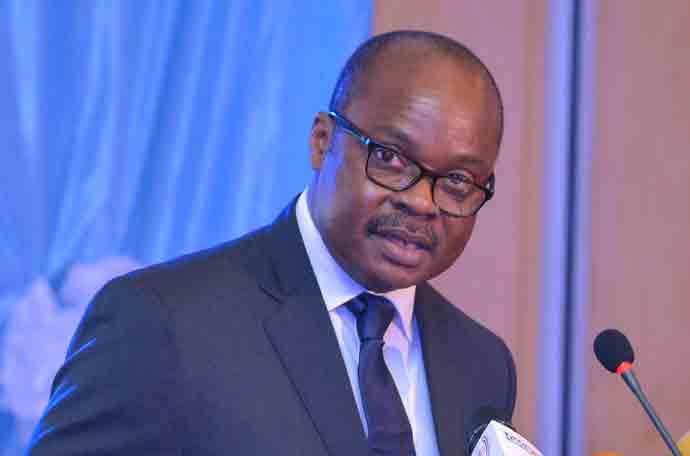
Bank of Ghana marks 63yrs of central banking
The Bank of Ghana (BoG) has commended the general public for the support over the years with a pledge to continue championing "inclusive and sustainable socio-economic growth for the Ghanaian people."
In a press statement to mark 63 years of the bank's existence and central banking in the country,the BoG said it had since its establishment on August 4,1957 lived up to its responsibility of promoting economic and giving true meaning political independence.
In the statement issued yesterday and copied the Daily Graphic, the bank said its establishment was "pivotal to promoting economic self-governance and giving true meaning to political independence."
"On the occasion of Ghana’s Founders’ Day on August 4, 2020, the board, management and staff of the BoG thank all stakeholders (including former board members, governors and staff) for their relentless dedication and support over the last 63 years," the statement said
History
The BoG replaced the West African Currency Board (WACB) in 1957 as Ghana's central bank and issuer of its first currency, the Ghana pound.
Prior to its establishment, the WACB, which was established by the British in 1912, was in charge of the issuance and redemption of currencies for the then Gold Coast and other colonies such as Nigeria, Sierra Leone and The Gambia.
Four months after the country gained independence from the British, the BoG opened its doors to the public after it was established under the Bank of Ghana Ordinance No. 34, 1957.
Important role
Beyond having the authority to perform central bank duties fully, the statement said, "Importantly, the BoG was mandated under the Bank of Ghana Ordinance No. 34, 1957 to issue and redeem bank notes and coins, keep and use foreign reserves, influence the credit situation with a view to maintaining monetary stability in Ghana and the external value of the Ghana pound and act as banker and financial adviser to the government, " the statement said.
It said in addition to its core objective of maintaining monetary or price stability, as enshrined in the 1992 Constitution, the bank had the additional statutory objective of promoting financial stability "as was explicitly conferred on it by the 2016 amendment to the Bank of Ghana Act 2002 (Act 612)."
It said the bank had continued to develop its structures, policy tools and instruments, as well as its capacity to deliver on its mandate in spite of structural challenges facing the economy.
It said such challenges included the small, largely informal, commodity-based nature of economy, open to global trade and investments.
"The bank has strengthened its monetary policy effectiveness over the years with the adoption of the inflation targeting (IT) framework over a decade ago under which the monetary policy rate is its main policy tool."
"This framework has promoted clarity and transparency in monetary policy formulation and helped lower inflation volatility and reduced inflation from above 40 per cent, now edging closer to the medium-term target of 8±2 per cent," it said.
Regulatory effectiveness
The statement noted that the BoG had also strengthened its regulatory effectiveness to help achieve financial stability.
It recalled the recent closure of 420 banks and other financial institutions to help sanitise and strengthen the financial sector and create the environment for stronger and well-run institutions to better support the economy.
"The bank has pursued other regulatory reforms over the last three years, including augmenting capital requirements, implementing international regulatory standards (including the Basel II/III standards), issuing new rules on corporate governance and cyber and information security, launching the sustainable banking principles, promoting technological innovation in the delivery of financial services and payment products for all economic actors, and launching the Ghana Deposit Protection Scheme to protect the savings of small depositors," it said.
Cooperation
The statement said the BoG also continued to promote cooperation with other financial sector regulators in Ghana (through its membership of the Financial Stability Council established by the President in January 2019) and with foreign regulators to help achieve its financial stability objective.
It said these efforts helped to earn it international acclaim as the Central Bank of the Year in 2019.
It said it will also continued to play a key role in the sub-region and will do so to help shape economic cooperation and regional economic transformation initiatives within the West African Monetary Zone, ECOWAS and the rest of the continent.
COVID-19
The statement said the BoG's response to the ongoing COVID-19 pandemic was a further demonstration of its constant adaptation to the needs of the economy, while seeking to maintain price and financial stability.
"As the central bank and banking sector regulator, the BoG has responded to the unprecedented economic impacts of the pandemic with a number of policy and regulatory interventions, including a reduction in its monetary policy rate, reduction of reserve requirements for banks and specialised deposit-taking institutions, reduction in the capital conservation buffer maintained by banks and reduction in provisioning requirements for certain categories of loans," it said.
It also recalled the purchase of government bonds to support economic recovery efforts as some of the interventions that have helped to released liquidity in the banking system to allow banks to restructure existing loans and grant new ones to better support their clients.